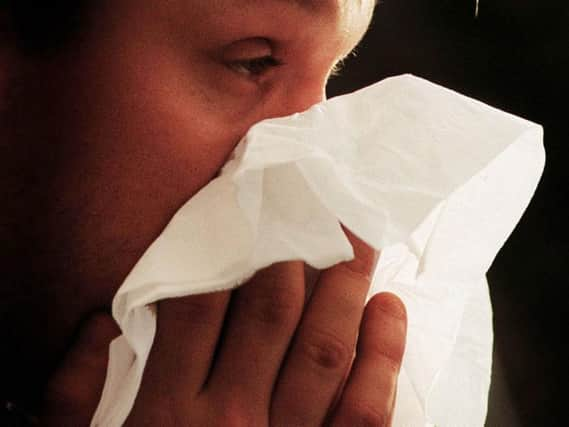'Pollen bomb' set to hit Doncaster causing three weeks of hayfever misery


Yesterday's high pollen count was just the start of weeks of a string of high readings which medics say could spark an increased risk of asthma attacks as well as the usual symptoms of sneezing, runny noses, itchy eyes, coughing and headaches.
The Met Office has warned of “very high” pollen counts this week in some parts of the UK and pollen expert Beverley Adams-Groom said the period of severe pollen counts could stretch out for at least another three weeks.
Advertisement
Hide AdAdvertisement
Hide AdShe said: “I knew a while back that this was likely to be a severe year. We had an early season with the Birch pollen, which was severe as well.
“I think we’ve got several weeks yet of severe pollen counts, and possibly more.
“If we get a rainy spell that will set the season back a little bit, so it’ll last for longer.
"The grasses will pause and then they’ll come back again.
“If we get a lot of hot weather, they’ll be exhausted quickly.
Advertisement
Hide AdAdvertisement
Hide Ad“But, we’re still looking at least another three weeks, minimum.”
Asthma UK has warned millions of sufferers are at an increase risk of an attack when pollen counts are high.
Spokeswoman Sonia Munde said: “Pollution and pollen are top triggers for asthma attacks, with each affecting an estimated 3.3 million people in the UK with asthma.
“People with asthma who also have a pollen allergy not only experience classic hay fever symptoms such as itchy eyes and a running nose, but are also more likely to get asthma symptoms.
Advertisement
Hide AdAdvertisement
Hide Ad“People who have asthma that is triggered by pollution or pollen should make sure they take their preventer inhaler as prescribed, carry their reliever inhaler with them at all times and take hay fever medicines such as antihistamines and nasal steroid sprays.”